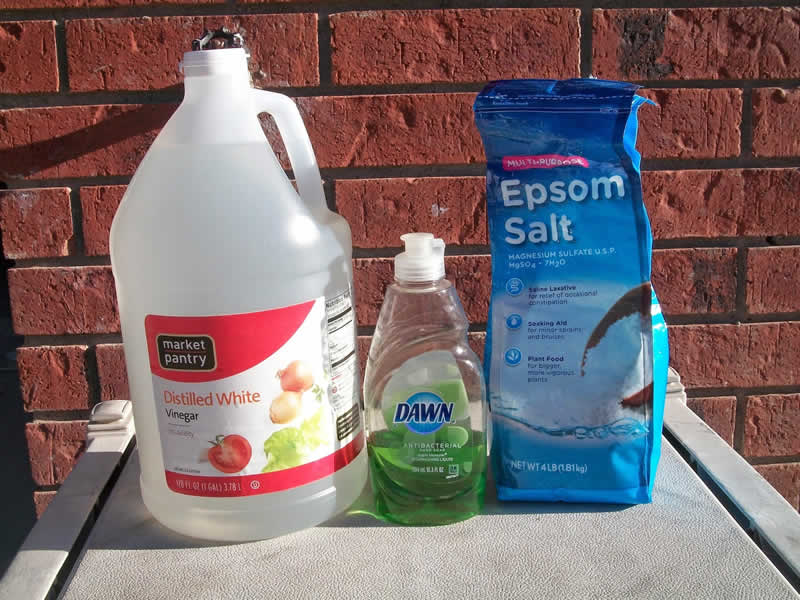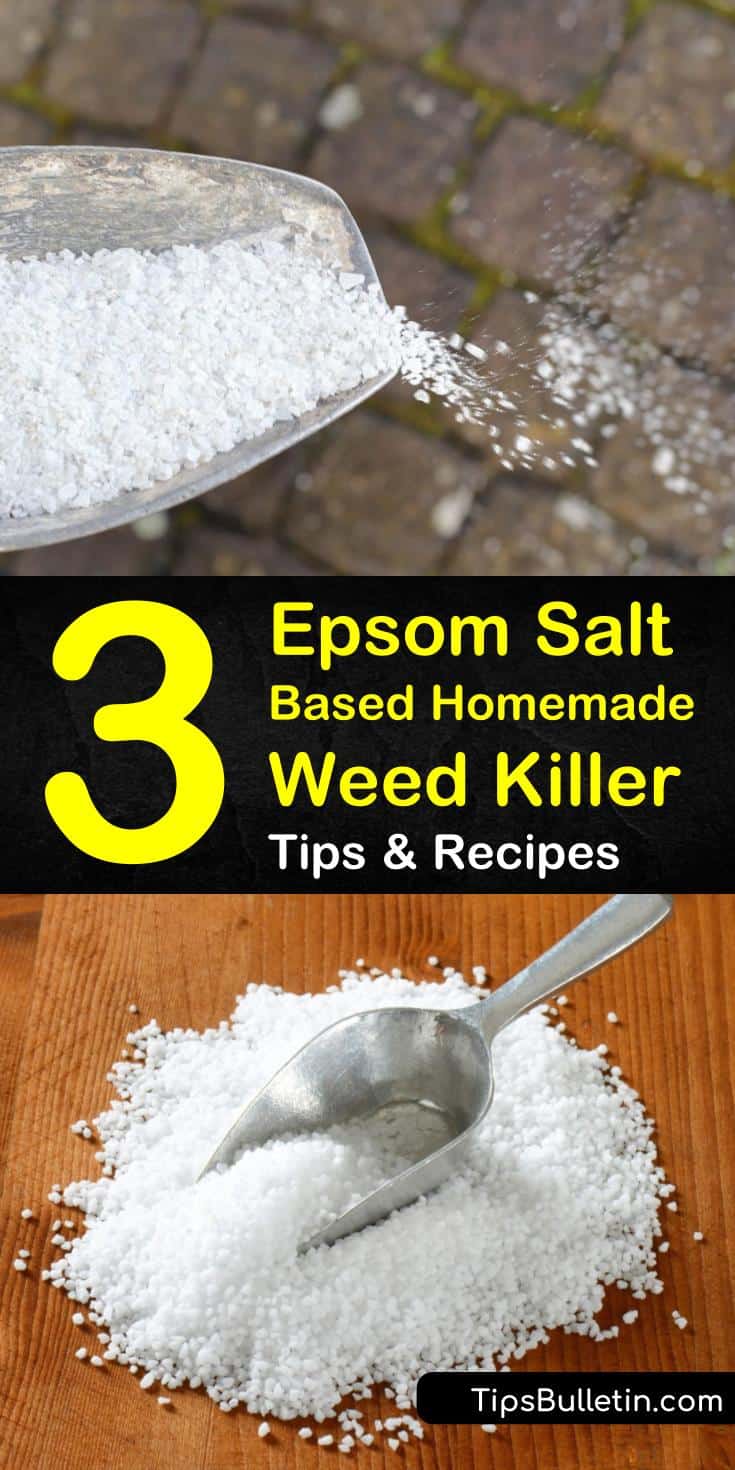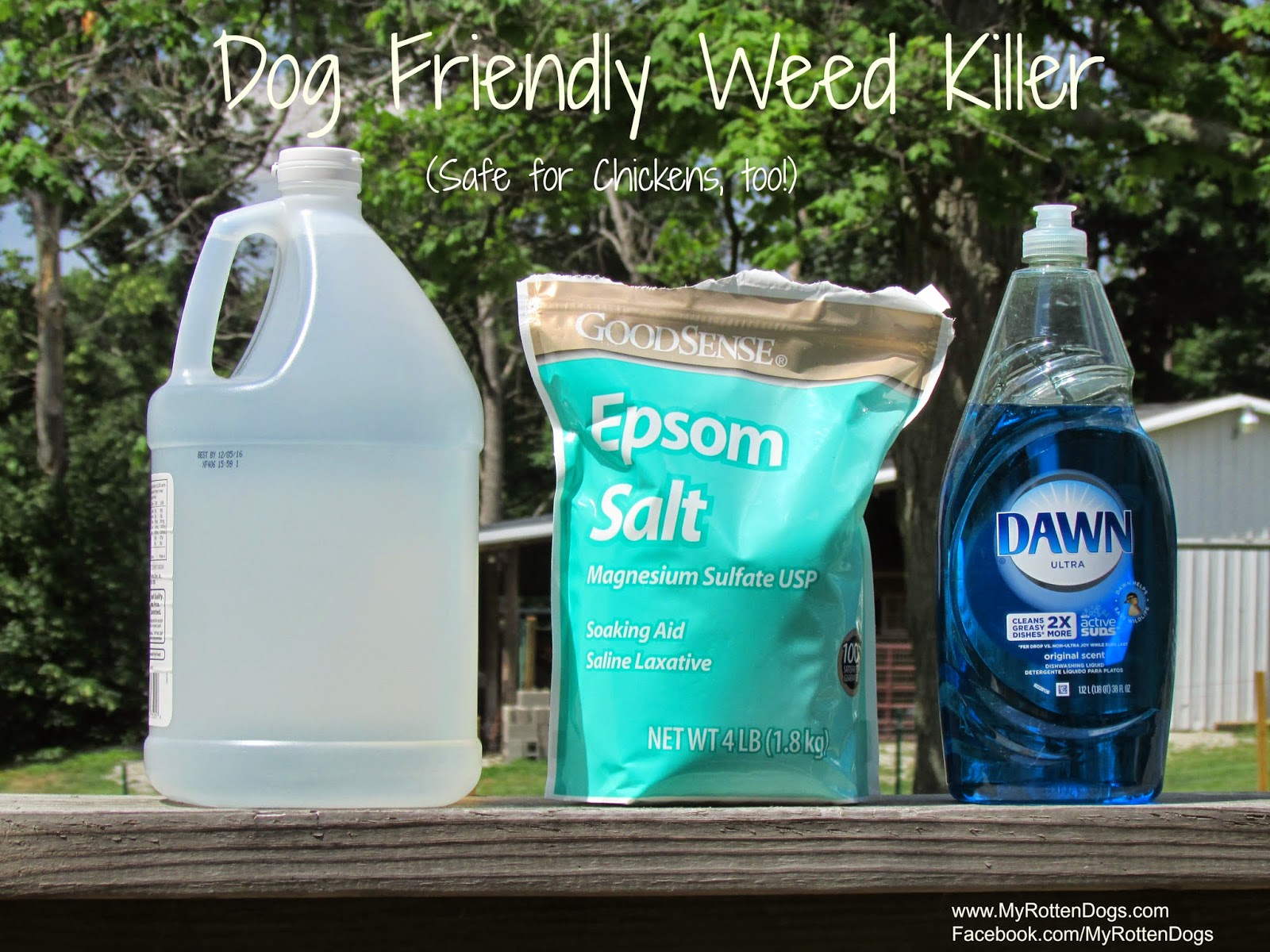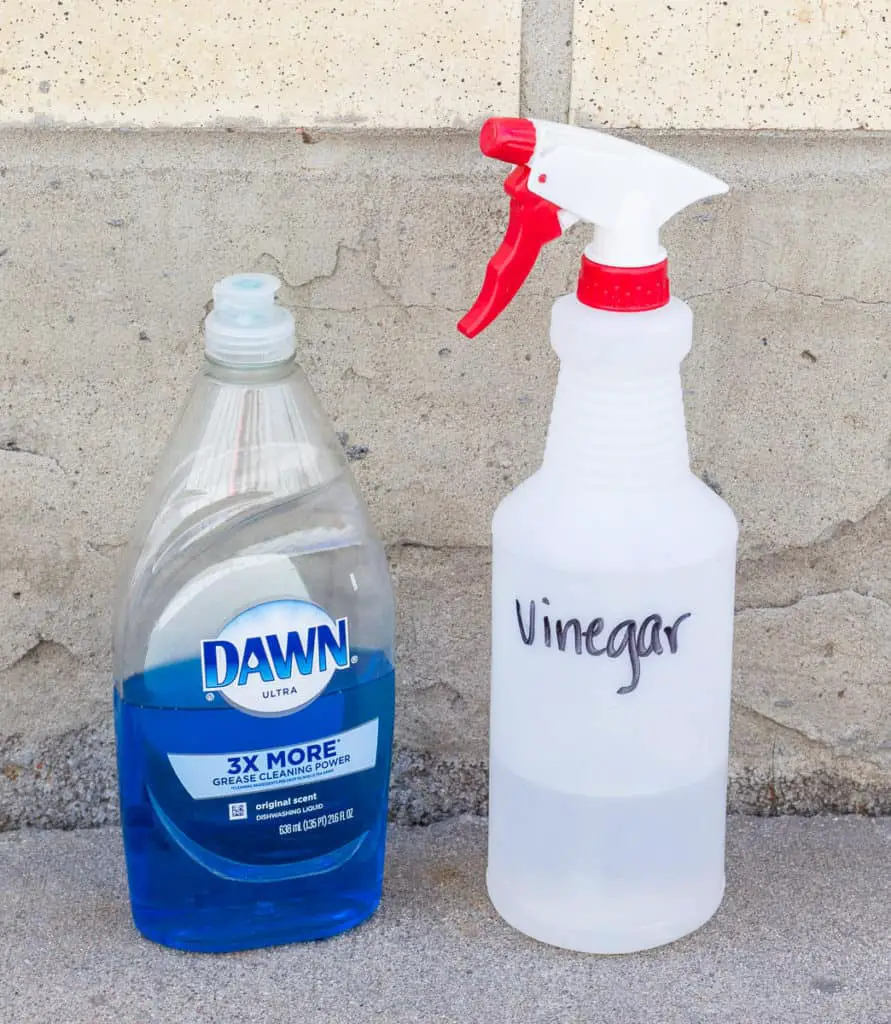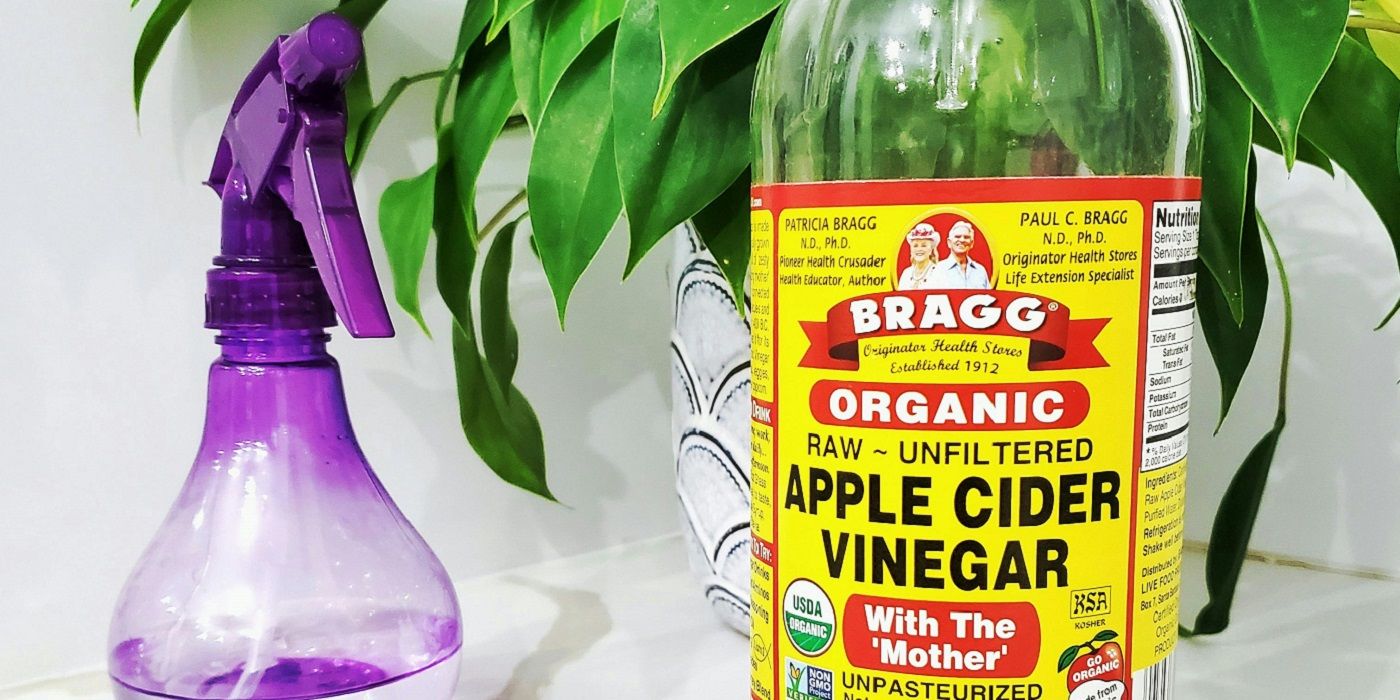Why Chemical Herbicides Are Not the Best Solution
The use of chemical herbicides has been a common practice in weed control for decades. However, the drawbacks of using these chemicals are becoming increasingly apparent. Chemical herbicides can contaminate soil, water, and air, posing a significant threat to the environment. Moreover, they can also harm pets and human health, particularly children and individuals with compromised immune systems. The risks associated with chemical herbicides have led to a growing demand for natural and eco-friendly alternatives. One such alternative is killing weeds with vinegar and Epsom salt, a method that is gaining popularity due to its effectiveness and environmental sustainability.
Chemical herbicides can also lead to the development of “superweeds,” which are resistant to the chemicals used to kill them. This can create a vicious cycle, where more and more chemicals are needed to control the weeds, further exacerbating the problem. In contrast, natural methods like killing weeds with vinegar and Epsom salt do not contribute to the development of superweeds, making them a more sustainable solution in the long run.
Furthermore, chemical herbicides can also harm beneficial insects and microorganisms in the soil, disrupting the delicate balance of the ecosystem. Natural methods, on the other hand, tend to be more targeted, killing only the weeds and leaving the beneficial organisms intact. This approach not only controls weeds but also promotes a healthy and thriving ecosystem.
In light of these concerns, it is essential to explore alternative methods for weed control. Killing weeds with vinegar and Epsom salt is a simple, cost-effective, and environmentally friendly solution that can be used in conjunction with other natural methods to create a comprehensive weed control strategy. By making the switch to natural methods, individuals can reduce their reliance on chemical herbicides and create a healthier, more sustainable environment.
How to Kill Weeds with Vinegar and Epsom Salt
The combination of vinegar and Epsom salt is a highly effective method for killing weeds. The acidity in vinegar, specifically acetic acid, is the primary component responsible for killing weeds. Acetic acid works by breaking down the cell walls of the weed, ultimately leading to its death. Epsom salt, on the other hand, contains magnesium, which is essential for plant growth. However, when used in conjunction with vinegar, the magnesium in Epsom salt helps to enhance the effectiveness of the acetic acid, making it a more potent weed killer.
When vinegar and Epsom salt are combined, they create a solution that is capable of killing weeds without harming the environment. The acidity in the vinegar helps to break down the weed’s cell walls, while the magnesium in the Epsom salt helps to enhance the effectiveness of the solution. This combination makes killing weeds with vinegar and Epsom salt a highly effective and eco-friendly method for weed control.
The science behind killing weeds with vinegar and Epsom salt is based on the concept of osmosis. When the solution is applied to the weed, the acetic acid in the vinegar helps to break down the cell walls, causing the weed to lose water and eventually die. The magnesium in the Epsom salt helps to enhance this process, making it more effective at killing the weed. This natural process makes killing weeds with vinegar and Epsom salt a safe and effective method for weed control.
It’s worth noting that killing weeds with vinegar and Epsom salt is not a quick fix, but rather a long-term solution. It may take some time to see the full effects of the solution, but with repeated applications, it can be an effective method for controlling weeds. Additionally, this method is not limited to killing weeds, it can also be used to prevent weeds from growing in the first place, making it a valuable tool for maintaining a healthy and weed-free lawn.
The Benefits of Using Vinegar and Epsom Salt
One of the most significant advantages of using vinegar and Epsom salt for killing weeds is their low cost. Both vinegar and Epsom salt are inexpensive and widely available, making them a cost-effective solution for weed control. Additionally, they are easy to use, requiring only a simple mixture of the two ingredients to create an effective weed-killing solution.
Another benefit of using vinegar and Epsom salt is their environmental sustainability. Unlike chemical herbicides, which can harm the environment and contaminate soil and water, vinegar and Epsom salt are natural and biodegradable. They do not pose a risk to pets, humans, or wildlife, making them a safe choice for weed control.
Furthermore, using vinegar and Epsom salt for killing weeds is a long-term solution. By targeting the root system of the weed, vinegar and Epsom salt can prevent weeds from growing back, reducing the need for repeated applications. This makes them a valuable tool for maintaining a healthy and weed-free lawn.
In addition to their effectiveness and environmental sustainability, vinegar and Epsom salt also offer a number of other benefits. They can help to improve soil health, increase crop yields, and even reduce the risk of pests and diseases. By incorporating vinegar and Epsom salt into your weed control strategy, you can create a comprehensive and sustainable approach to lawn care.
Overall, the benefits of using vinegar and Epsom salt for killing weeds make them an attractive alternative to chemical herbicides. Their low cost, ease of use, and environmental sustainability make them a valuable tool for anyone looking to maintain a healthy and weed-free lawn.
Preparing the Perfect Solution
To create an effective weed-killing solution using vinegar and Epsom salt, it’s essential to get the ratio right. A general rule of thumb is to mix 1 cup of white vinegar with 1 tablespoon of Epsom salt. This ratio can be adjusted depending on the type of weeds you’re trying to kill and the severity of the infestation.
To mix the solution, start by filling a spray bottle with 1 cup of white vinegar. Add 1 tablespoon of Epsom salt to the vinegar and stir until the salt is fully dissolved. This will create a solution that is effective at killing weeds without harming the environment.
Once the solution is mixed, it’s ready to use. Simply spray the solution directly onto the weeds, making sure to saturate the leaves and stems. The acidity in the vinegar will help to break down the cell walls of the weed, while the magnesium in the Epsom salt will help to enhance the effectiveness of the solution.
When applying the solution, it’s essential to avoid spraying it on desirable plants or grass. The solution can be damaging to these plants, so it’s crucial to take care when applying it. If you’re unsure about how to apply the solution or have concerns about its safety, consider consulting with a gardening expert or conducting further research.
In addition to the ratio of vinegar to Epsom salt, it’s also important to consider the timing of the application. The best time to apply the solution is during the hottest part of the day, when the sun is shining brightly. This will help to enhance the effectiveness of the solution and ensure that the weeds are killed quickly and efficiently.
By following these steps and using the right ratio of vinegar to Epsom salt, you can create an effective weed-killing solution that is safe for the environment and easy to use. This solution can be used to kill a variety of weeds, including broadleaf weeds, grassy weeds, and perennial weeds.
Targeting Specific Types of Weeds
When it comes to killing weeds with vinegar and Epsom salt, it’s essential to understand that different types of weeds require different approaches. Broadleaf weeds, such as dandelions and clover, are typically more susceptible to the acidity in vinegar and can be killed with a single application. Grassy weeds, such as crabgrass and quackgrass, may require multiple applications to achieve the desired results.
Perennial weeds, such as thistle and bindweed, can be more challenging to kill and may require a combination of vinegar and Epsom salt with other natural methods, such as boiling water or solarization. It’s also important to note that perennial weeds often have a deeper root system, which can make them more difficult to kill.
To target specific types of weeds, it’s crucial to adjust the ratio of vinegar to Epsom salt and the frequency of application. For example, broadleaf weeds may require a higher ratio of vinegar to Epsom salt, while grassy weeds may require a lower ratio. Perennial weeds may require multiple applications, spaced several days apart, to achieve the desired results.
In addition to adjusting the ratio and frequency of application, it’s also essential to consider the timing of the application. Weeds are typically most vulnerable to vinegar and Epsom salt during the active growing season, when they are producing new growth. Applying the solution during this time can help to maximize its effectiveness.
By understanding the different types of weeds and adjusting the approach accordingly, it’s possible to achieve effective results when killing weeds with vinegar and Epsom salt. This natural and eco-friendly method can be a valuable tool in maintaining a healthy and weed-free lawn.
Precautions and Safety Measures
While killing weeds with vinegar and Epsom salt is a natural and eco-friendly method, there are some precautions and safety measures to be aware of. One of the most common concerns is skin and eye irritation. The acidity in vinegar can cause skin irritation, especially if you have sensitive skin. It’s essential to wear protective gloves and eyewear when handling the solution.
Another potential risk is over-application. Applying too much of the solution can damage desirable plants and grass. It’s crucial to follow the recommended ratio of vinegar to Epsom salt and to apply the solution only to the weeds you want to kill.
In addition to skin and eye irritation and over-application, it’s also important to be aware of the potential for allergic reactions. Some people may be allergic to vinegar or Epsom salt, so it’s essential to do a patch test before using the solution on a large scale.
When using vinegar and Epsom salt to kill weeds, it’s also important to be mindful of the environment. While the solution is natural and biodegradable, it’s still possible to contaminate soil and water if not used properly. Make sure to apply the solution only to the weeds you want to kill and avoid spraying it on desirable plants or grass.
Finally, it’s essential to note that killing weeds with vinegar and Epsom salt may not be effective in all cases. Some weeds may be more resistant to the solution, and it may take multiple applications to achieve the desired results. In these cases, it may be necessary to combine the solution with other natural methods, such as boiling water or solarization, for a comprehensive weed control strategy.
Combining Vinegar and Epsom Salt with Other Natural Methods
While killing weeds with vinegar and Epsom salt is an effective method, it can be even more effective when combined with other natural methods. One such method is boiling water. Boiling water can be used to kill weeds by pouring it directly on the weed, scalding it and killing it. This method is especially effective for killing weeds in cracks and crevices, where vinegar and Epsom salt may not be able to reach.
Another method that can be combined with vinegar and Epsom salt is solarization. Solarization involves trapping the sun’s heat under a clear plastic tarp or sheeting, killing weeds and their seeds. This method is especially effective for killing weeds in large areas, such as lawns and gardens.
Mulching is another natural method that can be combined with vinegar and Epsom salt. Mulching involves covering the soil with a layer of organic material, such as wood chips or straw, to suppress weed growth. This method is especially effective for killing weeds in garden beds and around trees and shrubs.
By combining vinegar and Epsom salt with these other natural methods, you can create a comprehensive weed control strategy that is effective and sustainable. This approach can help to reduce the need for chemical herbicides and create a healthier, more balanced ecosystem.
For example, you can use vinegar and Epsom salt to kill weeds in the spring, and then follow up with mulching to suppress weed growth throughout the growing season. Alternatively, you can use boiling water to kill weeds in the summer, and then follow up with solarization to kill any remaining weeds and their seeds.
By combining these natural methods, you can create a powerful and effective weed control strategy that is gentle on the environment and safe for people and pets.
Maintaining a Weed-Free Lawn
Maintaining a weed-free lawn requires regular maintenance and upkeep. One of the most effective ways to prevent weeds from growing back is to maintain a healthy and dense lawn. This can be achieved by regular mowing, watering, and fertilizing.
Regular mowing helps to prevent weeds from growing by removing the tips of the weeds, which can prevent them from producing seeds. It’s essential to mow your lawn at the right height, as mowing too low can stress the grass and make it more susceptible to weeds.
Watering your lawn regularly also helps to prevent weeds from growing. Weeds thrive in dry conditions, so keeping your lawn well-watered can help to prevent them from growing. However, it’s essential to avoid overwatering, as this can lead to shallow roots and make your lawn more susceptible to weeds.
Fertilizing your lawn regularly also helps to prevent weeds from growing. Fertilizers provide essential nutrients to your lawn, which can help to promote healthy growth and prevent weeds from growing. It’s essential to choose a fertilizer that is specifically designed for your lawn type and to follow the instructions carefully.
In addition to regular mowing, watering, and fertilizing, it’s also essential to monitor your lawn regularly for signs of weeds. Catching weeds early can help to prevent them from spreading and make them easier to control.
By following these tips and maintaining a healthy and dense lawn, you can help to prevent weeds from growing back and maintain a weed-free lawn. Remember to always use natural and eco-friendly methods, such as killing weeds with vinegar and Epsom salt, to control weeds and maintain a healthy and sustainable lawn.


